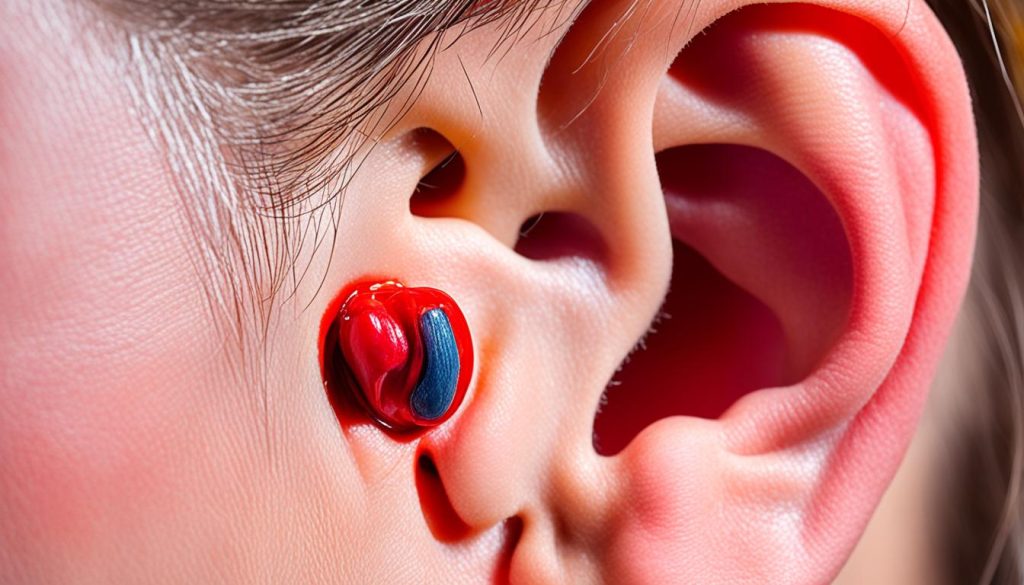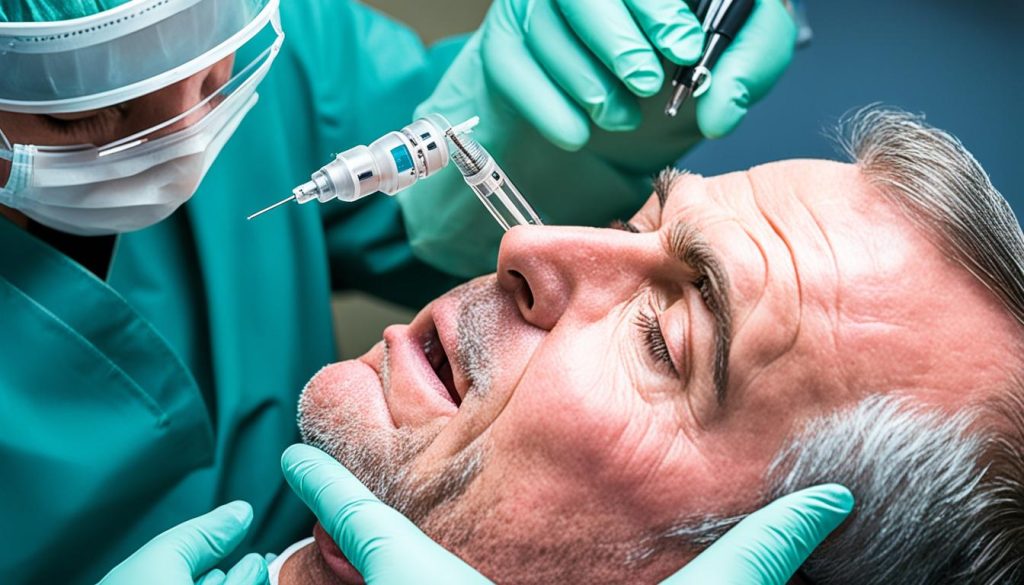Ear infections are a common problem, especially in young children. The main symptom is an earache, often accompanied by fever and fussiness. When it comes to treating ear infections with antibiotics, one question that parents often ask is: how long does it take for an ear infection to heal with antibiotics?
The duration of healing with antibiotics can vary from child to child, but most children start to feel better within 2 to 3 days of starting treatment. This means that your little one can experience ear infection recovery within a relatively short period of time. It’s important to give the full course of antibiotics as prescribed by the doctor to ensure complete healing and prevent recurrence.
How Long Does It Take for an Ear Infection to Heal With Antibiotics?
Ear infections, also known as otitis media, are a common condition that can cause discomfort and pain, especially in children. Understanding the symptoms and causes of ear infections is essential for proper diagnosis and treatment.

Symptoms of Ear Infections
Recognizing the symptoms of an ear infection can help identify the condition and seek appropriate medical attention. The main symptom of an ear infection is an earache, which can range from mild to severe. Other common symptoms include:
- Ear pain
- Fever
- Fussiness or irritability
- Difficulty sleeping
- Fluid drainage from the ear
If you or your child experience any of these symptoms, it is important to consult a healthcare professional for a proper diagnosis and treatment plan.
Causes of Ear Infections
The most common cause of ear infections is a bacterial infection of the middle ear. This occurs when the eustachian tube, which connects the middle ear to the back of the throat, becomes blocked. The blockage is often a result of a cold or other respiratory infection, causing fluid to accumulate in the middle ear. In some cases, the build-up of fluid can lead to the development of bacteria, leading to an infection.
Factors that increase the risk of developing ear infections include:
- Young age: Ear infections are most common in children between 6 months and 2 years of age.
- Daycare attendance: Being in close contact with other children increases the exposure to germs and viruses.
- Seasonal changes: Ear infections are more prevalent during the fall and winter months.
- Passive smoking: Exposure to tobacco smoke can irritate the eustachian tube and increase the risk of infection.
Understanding the symptoms and causes of ear infections is crucial for early detection and appropriate treatment. By recognizing the signs and seeking medical attention, you can help alleviate discomfort and promote a speedy recovery.
Treatment and Recovery of Ear Infections
Ear infections are a common issue, especially in young children. Fortunately, they can be effectively treated with antibiotics. The healing process of ear infections with antibiotics is usually quick and straightforward, with most children experiencing significant improvement within a few days.
The duration of antibiotics for ear infection treatment varies depending on the severity of the infection and the specific antibiotic prescribed by the doctor. However, it’s crucial to complete the full course of antibiotics as prescribed, even if the symptoms improve or disappear.
When treating ear infections with antibiotics, such as amoxicillin, it’s essential to follow the prescribed dosage and frequency. Most children start to feel better within 2 to 3 days of starting treatment, and the fever typically resolves within 48 hours. The ear pain, which is one of the main symptoms of an ear infection, usually improves within 72 hours.
It’s important to note that each child’s recovery timeline can vary, and some may require a longer duration of antibiotics for complete healing. If the symptoms persist or worsen despite antibiotic treatment, it’s essential to follow up with the doctor for further evaluation and possible adjustments to the treatment plan.
Recommended Treatment and Recovery Timeline for Ear Infections:
| Timeline | Recovery Milestone |
|---|---|
| Within 2-3 days of starting treatment | Improvement in symptoms |
| Within 48 hours | Resolution of fever |
| Within 72 hours | Improvement in ear pain |
| Varies | Complete healing depending on the individual |
It’s important to remember that while antibiotics are often necessary for the treatment of ear infections, they may not be suitable for every case. Always consult a healthcare professional for an accurate diagnosis and appropriate treatment options.

In the next section, we will explore preventive measures and management techniques to reduce the risk of ear infections and promote overall ear health.
Prevention and Management of Ear Infections
Preventing ear infections is essential for the well-being of children. By following a few simple measures, parents can significantly reduce the risk of their child developing this painful condition.
- Avoid tobacco smoke: Exposure to secondhand smoke increases the likelihood of ear infections. Keep your child away from smokers and create a smoke-free environment.
- Reduce contact with sick children: Ear infections are often contagious. Limit your child’s exposure to other children who are sick or experiencing respiratory infections.
- Breastfeed for the first 6 to 12 months: Breast milk provides valuable antibodies that strengthen a child’s immune system, making them less susceptible to infections.
- Get recommended vaccines: Vaccines, such as the pneumococcal and flu shots, help prevent various infections, including those that can lead to ear infections.
In some cases, when a child experiences frequent or persistent ear infections, ear tube surgery may be recommended. This surgical procedure, also known as ventilation tube surgery, involves the insertion of tiny tubes into the eardrums. These tubes help ventilate the middle ear and prevent fluid buildup, reducing the risk of future infections.

| Treatment | Description |
|---|---|
| Antibiotics | Prescribed to treat acute ear infections caused by bacteria. It’s important to complete the full course of antibiotics as prescribed by the doctor. |
| Ear tube surgery | A surgical procedure involving the placement of small tubes in the eardrums to prevent fluid accumulation and reduce the frequency of ear infections. |
| Vaccines | Recommended vaccines, such as the pneumococcal and flu shots, can help prevent initial respiratory infections that can lead to ear infections. |
Conclusion
Dealing with an ear infection can be tough, especially for young children. However, with the appropriate treatment, most kids experience relief within a few days of starting antibiotics. It’s crucial to complete the full course of medication and consult a doctor if symptoms persist or worsen.
Aside from medication, taking preventive measures can also aid in reducing the risk of ear infections. Avoiding smoke and maintaining good hygiene practices go a long way in keeping these infections at bay.
If you have any concerns or queries regarding ear infections, it’s advisable to seek personalized advice from a healthcare professional. They can provide you with the guidance you need to ensure a speedy recovery for your child.




